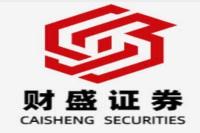Decoding the Hang Seng Futures: A Deep Dive into Market Dynamics and Predictive Strategies (Meta Description: Hang Seng Futures, market analysis, trading strategies, investment insights, risk management, index futures, Hong Kong market)
Imagine this: You're staring at your trading screen, the Hang Seng Futures ticker flashing red. Your stomach clenches. Is this a dip to buy or a sign of a bigger crash? The pressure is on, the stakes are high, and the market's relentless rhythm feels like a rollercoaster you can't quite control. Sound familiar? You're not alone. Navigating the complex world of Hang Seng futures requires more than just luck; it demands a strategic understanding of market forces, a keen eye for detail, and a healthy dose of risk management savvy. This isn't just about numbers; it's about deciphering the stories behind the numbers, understanding the underlying economic currents that propel – or sink – this crucial Asian market index. For years, I've been immersed in the intricacies of the Hong Kong stock market, witnessing firsthand the exhilarating highs and gut-wrenching lows. I've learned to read between the lines, to interpret subtle shifts in market sentiment, and to develop strategies that help me – and hopefully, you – navigate this dynamic landscape. This in-depth guide isn't just another technical analysis; it’s a roadmap built on years of practical experience, offering actionable insights and empowering you to approach Hang Seng futures trading with confidence and a clear understanding of the potential pitfalls and rewards. Get ready to transform your approach to futures trading and unlock the potential of the Hang Seng. Prepare yourself for a journey that will demystify this exciting yet challenging market. Let's dive in!
Understanding Hang Seng Futures: The Basics
Hang Seng Futures (HSI) are derivative contracts that track the performance of the Hang Seng Index (HSI), a market capitalization-weighted index representing the 50 largest companies listed on the Hong Kong Stock Exchange (HKEX). These futures contracts allow investors to speculate on the future direction of the HSI without actually owning the underlying stocks. Think of it as a bet on whether the index will go up or down over a specific period. It's a powerful tool for both hedging (reducing risk) and speculation (seeking profit). But, as with any investment, understanding the risks is paramount. A sudden geopolitical event, a shift in economic policy, or even a surprising earnings report can send ripples—or even tidal waves—through the market, impacting your positions dramatically. That's why thorough research, informed decision-making, and disciplined risk management are absolutely critical to success in this arena.
Why Trade Hang Seng Futures?
- Leverage: Futures trading offers leverage, allowing you to control a larger position with a smaller initial investment. However, this leverage magnifies both profits and losses.
- Hedging: Companies with significant exposure to the Hong Kong market can use futures to hedge against potential losses.
- Speculation: Traders can speculate on the future direction of the HSI, aiming to profit from price movements.
- Liquidity: The Hang Seng futures market is highly liquid, meaning contracts are easily bought and sold.
- 24/5 Access: The market operates effectively 24/5, facilitating participation from diverse global time zones.
Risks Associated with Hang Seng Futures Trading:
- Market Volatility: The HSI can be highly volatile, leading to significant losses in a short time.
- Leverage Risk: As mentioned, leverage amplifies both gains and losses, potentially leading to substantial losses.
- Margin Calls: If the market moves against your position, you may receive a margin call, requiring you to deposit additional funds to maintain your position. Failure to meet a margin call can result in liquidation of your position.
- Geopolitical Risks: Events in China and globally can significantly impact the HSI.
- Economic Uncertainty: Global economic downturns or regional economic instability can profoundly impact the HSI.
Factors Influencing Hang Seng Futures Prices
Numerous factors influence the price of Hang Seng futures. Understanding these factors is crucial for effective trading. Let's break them down:
Macroeconomic Factors:
- Global Economic Growth: A strong global economy generally supports the HSI. Conversely, global recessions or slowdowns tend to negatively impact the index.
- Interest Rates: Changes in interest rates, particularly in the US and China, can affect investment flows into Hong Kong and consequently the HSI.
- Inflation: High inflation can erode corporate profits and depress investor sentiment.
- Currency Fluctuations: The value of the Hong Kong dollar (HKD) relative to other currencies, especially the US dollar (USD), significantly impacts the HSI. Consider the impact of currency swaps and hedging strategies here.
- US-China Relations: Tensions between the US and China can dramatically influence investor confidence in the Hong Kong market.
Microeconomic Factors:
- Company Performance: The performance of individual companies within the HSI significantly influences its overall value. Strong earnings reports and positive business news tend to boost the index.
- Industry Trends: Changes in various sectors, such as technology, finance, and real estate, can impact the performance of the HSI.
- Investor Sentiment: Overall market sentiment, whether bullish or bearish, plays a major role in price movements.
- Regulatory Changes: Changes in regulations in Hong Kong can affect the market.
Technical Analysis and Chart Patterns:
Technical analysis, using charts and indicators, can provide valuable insights into potential price movements. However, it’s crucial to remember that technical analysis is not a crystal ball. It's a tool to be used in conjunction with fundamental analysis and a sound risk management strategy. Common indicators include moving averages, relative strength index (RSI), and MACD. Identifying patterns like head and shoulders, double tops/bottoms, and trendlines can give traders clues about potential future price action. But, remember, past performance is not indicative of future results!
Developing a Hang Seng Futures Trading Strategy
A successful trading strategy integrates fundamental and technical analysis with a robust risk management framework. Here's a breakdown of key elements:
1. Defining Your Trading Goals: What are your objectives? Are you seeking long-term growth, short-term profits, or hedging against risk? Your goals will dictate your strategy.
2. Fundamental Analysis: Thoroughly research the macroeconomic and microeconomic factors impacting the HSI. Stay updated on news, economic indicators, and company performance.
3. Technical Analysis: Utilize charts and technical indicators to identify potential entry and exit points. Develop a system for identifying trends and reversals. This may involve using software or platforms designed for technical analysis.
4. Risk Management: This is arguably the most crucial aspect. Determine your risk tolerance and never risk more than you can afford to lose. Use stop-loss orders to limit potential losses. Diversification across different contracts or asset classes can also be helpful. Consider position sizing carefully; “all your eggs in one basket” is a recipe for disaster.
5. Backtesting: Before implementing your strategy with real money, test it using historical data. This allows you to refine your approach and identify potential weaknesses.
6. Continuous Learning: The markets are constantly evolving. Stay updated on market trends and economic developments through reputable financial news sources and continuous professional development.
Frequently Asked Questions (FAQs)
Q1: What is the minimum amount I need to trade Hang Seng Futures?
A1: The minimum margin requirement varies depending on your broker and the contract size. It's crucial to check with your broker for their specific requirements.
Q2: How do I open a Hang Seng Futures trading account?
A2: You'll need to open an account with a brokerage firm that offers access to the HKEX. The process typically involves providing identification and financial information.
Q3: What are the trading hours for Hang Seng Futures?
A3: Hang Seng Futures are traded electronically, and the hours of operation extend beyond standard trading hours, providing a 24/5 market.
Q4: What are the tax implications of trading Hang Seng Futures?
A4: Tax implications vary depending on your jurisdiction and the nature of your trading activity. Consult a tax professional for specific advice.
Q5: Are there any educational resources available for learning about Hang Seng Futures trading?
A5: Yes, many online resources, including educational websites, brokerage platforms, and books, provide information on futures trading.
Q6: What are some common mistakes to avoid when trading Hang Seng Futures?
A6: Avoid over-leveraging, ignoring risk management, emotional trading, and neglecting fundamental analysis.
Conclusion
Trading Hang Seng futures presents both significant opportunities and substantial risks. Success requires a well-defined trading strategy, disciplined risk management, and a commitment to continuous learning. By understanding the underlying economic forces, utilizing technical analysis effectively, and carefully managing risk, you can enhance your chances of navigating the exciting, yet volatile, world of Hang Seng futures trading. Remember, patience, discipline, and a realistic assessment of your own capabilities are your most valuable assets in this game. Don't chase quick riches; focus on consistent, informed decision-making, and the market will reward your efforts. Good luck, and happy trading!



